

Chinese Premier Li Keqiang interacts with old friends and representatives of local people at San Shu Gong specialty shop in Malacca, Malaysia, Nov. 22, 2015. Li, accompanied by his wife Cheng Hong, visited Malacca on Sunday. (Xinhua/Liu Weibing)
SPIRIT PASSED DOWN FOR CENTURIES
Six months before Li's visit to Malacca, Zhai Mo, a well-known Chinese navigator, also made a stop at the famous port city while leading his fleet of unpowered sailboats to retrace the ancient Maritime Silk Road in a bid to pass down Zheng's spirit.
They encountered heavy rain at the Strait of Malacca. "The sea water turned into dark green in the storm, and we approached the shore in rafts," Zhai said while recalling his first landing on Malacca.
"What struck me most is the sharp contrast -- how small the strait is and how huge Zheng He's fleets would have appeared," Zhai said.
Zhai could not even find a proper berth to anchor his boat, which has a draught of only 2.5 meters. It is just beyond his imagination how Zheng's hundreds of vessels and some 28,000 boatmen on board managed to swarm into the strait 600 years ago.
Looking around the exhibits, including boat models and porcelain remains said to be excavated from an ancient warehouse left by Zheng, the premier said he believes it was also the sharp contrast between what Zheng's powerful fleets could have done and what he actually did that won him the everlasting reputation.
As the museum displays, Zheng asked his people to help local soldiers and civilians build city walls, drive away pirates, settle conflicts and keep peace at sea in Malacca. They also passed agricultural and manufacturing technologies and medical skills to the local people.
Commanding the largest and most advanced fleets in his time, Zheng did not bring hostility and conflicts. That embodies the very essence of the traditional Chinese philosophy, where peace and good-neighborliness always come first, Li noted.
Following this spirit, China's development today will never sacrifice the interests of other countries and will always pursue mutual benefit and common development of all its partners, he said, stressing that China is willing to solve maritime disputes through negotiations and dialogues.
Another of Zheng's legacies lies in the bloodline of a very special community in Malaysia -- Baba and Nyonya. They are descendants of Zheng's followers who decided to stay and married the local residents between the 15th and 17th centuries.
In Malacca, Li also visited a museum about these natives of mixed blood, who have inherited both Chinese and Malaysian traditions and formed their own cultures in food, clothes, chinaware and building.
The Baba and Nyonya community is "a vivid example of the friendly exchanges and cultural blending between the two countries," Li said. "They also showcase the openness and tolerance of Zheng He's spirit, which allows different ethnic groups, cultures and religions to live in harmony."
"Learning from the history, we shall further promote cultural exchanges between China and Malaysia," he said.
 |  |
Day|Week

 118-meter-high Never-used Building in NW. China Demolished
118-meter-high Never-used Building in NW. China Demolished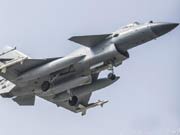 J-10B fighters with homegrown engine in test flight
J-10B fighters with homegrown engine in test flight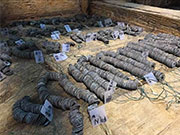 10 tons of copper coins unearthed in 2,000 years old ancient tomb
10 tons of copper coins unearthed in 2,000 years old ancient tomb Beautiful graduate from police college becomes Internet hit
Beautiful graduate from police college becomes Internet hit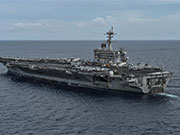 Photos of U.S. Navy intruding in South China Sea released
Photos of U.S. Navy intruding in South China Sea released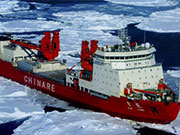 What is inside China's icebreaker ‘Xuelong’?
What is inside China's icebreaker ‘Xuelong’? Chinese, U.S. navies hold first-ever joint exercise in the Atlantic
Chinese, U.S. navies hold first-ever joint exercise in the Atlantic In pics: skies of glory
In pics: skies of glory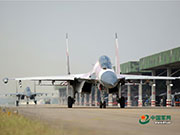 J-10, J-11, Sukhoi Su-30 fighters vs. HQ-9 anti-aircraft missile system
J-10, J-11, Sukhoi Su-30 fighters vs. HQ-9 anti-aircraft missile system Russian plane crash victims sucked out of seats as 'external impact' blew jet apart
Russian plane crash victims sucked out of seats as 'external impact' blew jet apart